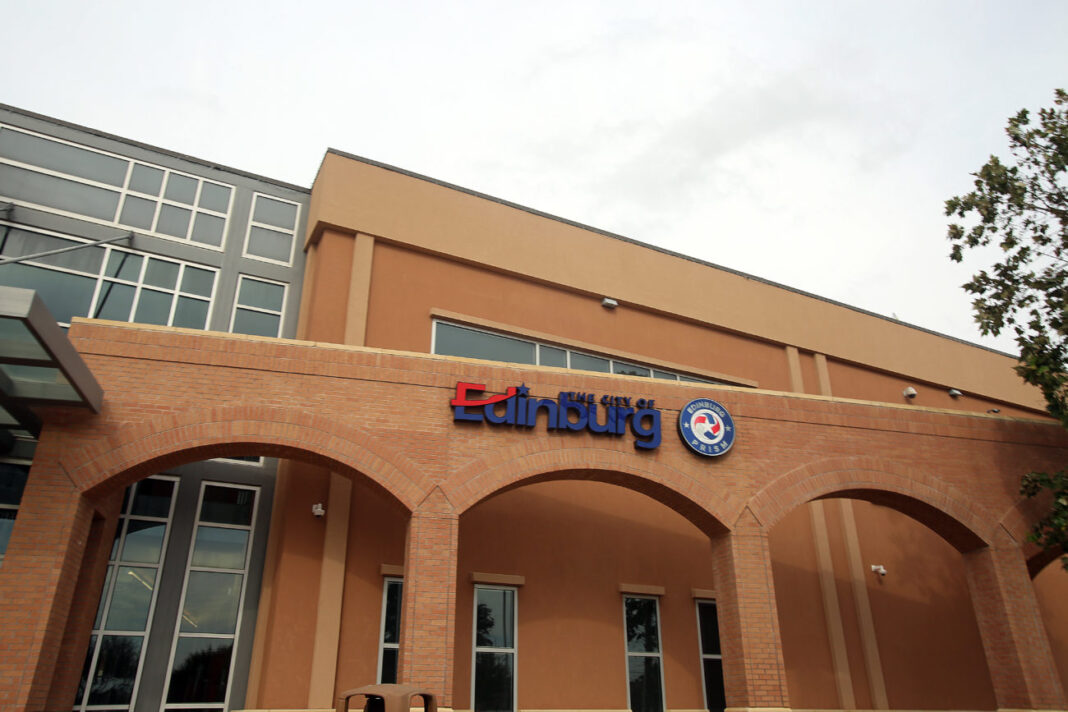The auditing firm is stating that — if we can provide clean data that they can work with — then we should probably be able to accomplish the audit within 90 days.
EDINBURG — Place 4 Councilman David White questioned Edinburg City Manager Myra Ayala why there was a need to call a special meeting Wednesday evening.
The council had gathered at the request of Mayor Ramiro Garza Jr. to go over the fiscal audit process, Ayala explained.
Wednesday’s meeting took place on the deadline state law dictates that municipalities must file their financial audits and make them public. However, Edinburg was not only unprepared to present an audit report, but would be months late in being able to do so.
“At this time, it looks like we should be late on the deadline, but we’re kinda hoping to provide all of the information (to the auditors) by the end of April,” Ayala told the council.
The earliest Edinburg officials and residents can hope to learn about the city’s financial health will be the end of July — and that’s if everything goes according to plan.
“The auditing firm is stating that — if we can provide clean data that they can work with — then we should probably be able to accomplish the audit within 90 days,” Ayala said.
The city manager explained that turnover within the city’s finance department, as well as new accounting standards, has upended the city’s ability to compile its financial data in a timely fashion.
Edinburg’s finance director, Dagoberto Soto Jr., left last fall, shortly after the city approved its budget for 2023. A job posting on the city’s website shows Edinburg has been looking to replace Soto since Oct. 17, 2022.
Since his departure, interim Finance Director Flor Segura and Assistant City Manager Nelda Ramirez have been shouldering the load in the finance department, Ayala said.
That includes implementing new recordkeeping standards.
“There’s a new GASB law that came into play. A new reporting rule,” Ayala said, referring to the Governmental Accounting Standards Board. “So, that’s caused a little delay because that’s additional data that we need to compile and provide,” she continued.
All municipalities were required to adopt the new standard, which governs lease accounting, according to the city of McAllen’s auditors.
“It essentially adds an asset and a liability for all types of leases on your financial statements, whether it’s an operating-type lease or a capital-type lease,” Adam McCane, of the Austin-based accounting firm, Weaver and Tidwell LLC, explained to McAllen officials earlier this week.
Regardless of what factors contributed to Edinburg falling behind in the first place, city staff are scrambling to catch up.
Ayala said city staff are working to compile the “cleanest” data before handing it over to the auditors in the hopes that doing so will help expedite the audit’s completion.
If Edinburg can accomplish that, then the auditors might be able to shorten their processing time by a month — from 120 days to 90 — according to auditor Ricky Longoria, of Burton, McCumber and Longoria.
Any later than that, however, and the delayed audit could have real-world ramifications for the city — potentially impacting its credit rating and ability to finance projects.
“(If) the council needs to entertain any projects in the summer, we really need to have that audit in,” Roberto “Bobby” Villarreal, executive vice president of Estrada Hinojosa, the city’s financial advisers, told the council.
“If it gets any later, there’s certain investors out there… certain ones will not come forward. Some will, but you may pay a premium to sell them (bonds),” Villarreal said.
Regardless of what factors contributed to Edinburg falling behind in the first place, city staff are scrambling to catch up.
However, Ayala doesn’t expect those kinds of consequences to come to pass.
Currently, Edinburg is not looking to finance any big ticket projects other than two that have already been in the works for a while.
The first is a $30 million loan from the Texas Water Development Board to fund renovations at the Edinburg wastewater treatment plant, and the other, a $15 million project to relocate infrastructure ahead of a highway project by TxDOT, Ayala said.
“We’re going to wait at least until we get, maybe, our property tax rolls, or maybe towards the end of summer to really start looking at our capital improvements program,” before considering taking on more debt, Ayala said.




